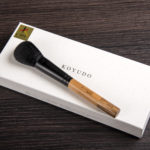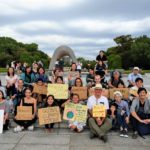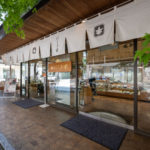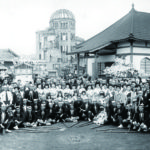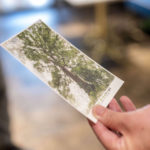Hiroshima’s first Western confectionery shop, loved for a century
Bringing smiles to people’s faces with sweets
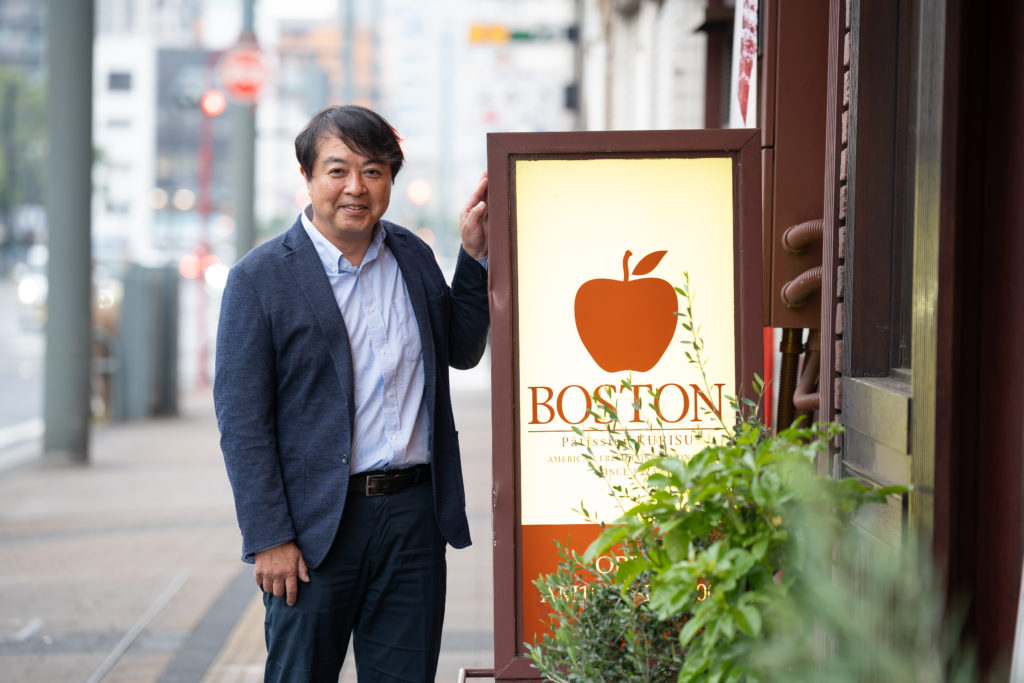
BOSTON was established in 1923 as the first Western confectionery shop in Hiroshima. It is known for its signature apple pies, famous stick cakes, and Hiroshima lemon cakes, made from lemons grown in Hiroshima. With 12 directly-managed stores in the prefecture, its sweets have been widely used as a snack during teatime or as a gift for loved ones. In September 2023, this shop, so familiar to local residents, celebrated its 100th anniversary. We asked company owner Kurisu Kazunori about the history of the shop, which continues to be loved by the local community while treading forward together with the history of Hiroshima.
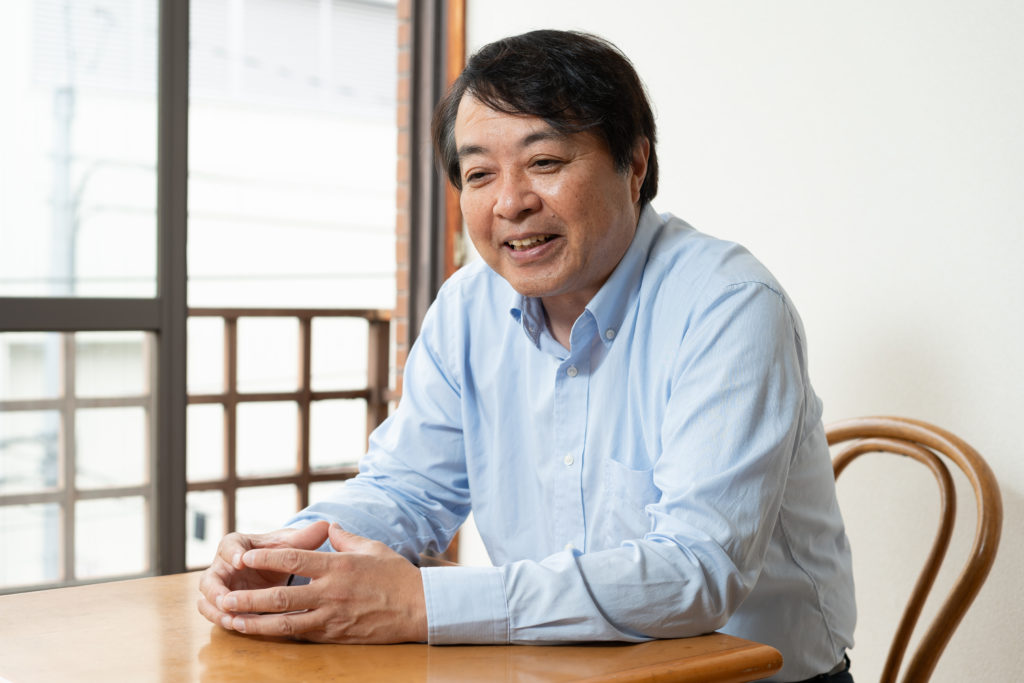
Kurisu Kazunori, the fourth BOSTON owner, whom we interviewed
The founder of BOSTON is Kazunori’s great-grandfather, Kurisu Hyakusaburo. He followed his older brother, who had moved to Hawaii, and became an apprentice cook there. After that, he worked in the restaurant business in various places in the U.S., and even managed a restaurant for a while. He had hoped to eventually do business in his hometown, so in 1923, after returning, he opened BOSTON’s predecessor, “Asahi Donuts”, in Kita-enomachi, Naka-ku (now Enomachi, Naka-ku). The shop’s Western confections, rare at the time, were well received, and the business thrived to the extent that several employees were hired.
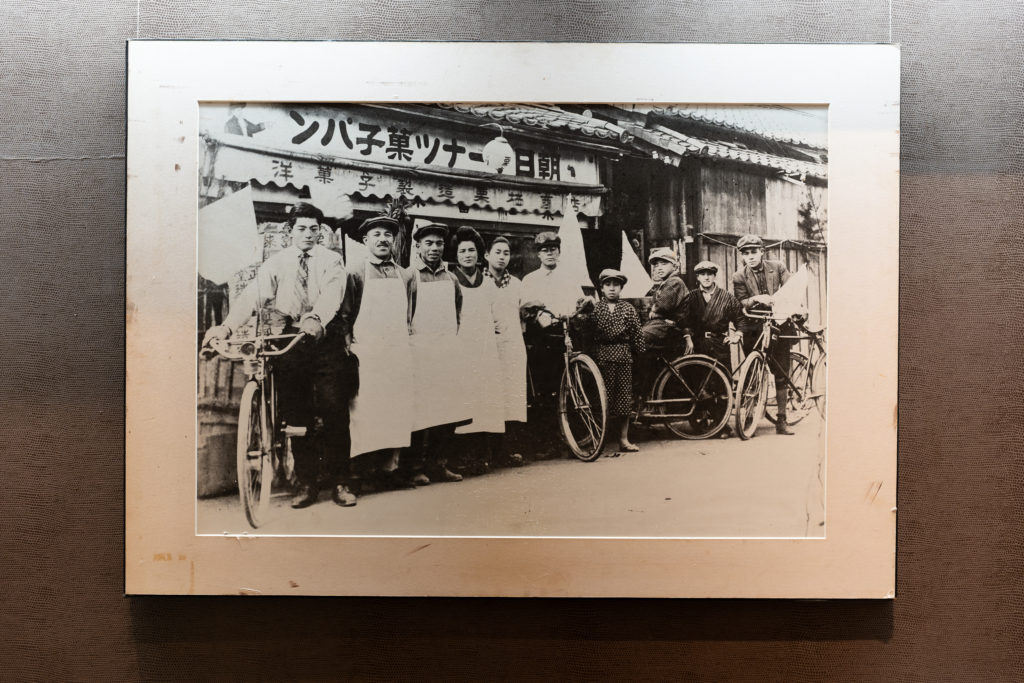
“Asahi Donuts”, founded by Kurisu Hyakusaburo. A photo of it when it was established is displayed in BOSTON’s main store.
Later, he opened a cafe called “Cafe Akizuki” in Nakajima-honmachi (now Peace Memorial Park), which was known as the busiest shopping area in Hiroshima. This cafe, which served waffles and anmitsu (bean jam and pieces of fruit served in syrup), also gained popularity, but closed in 1938 due to the cholera epidemic and other factors.
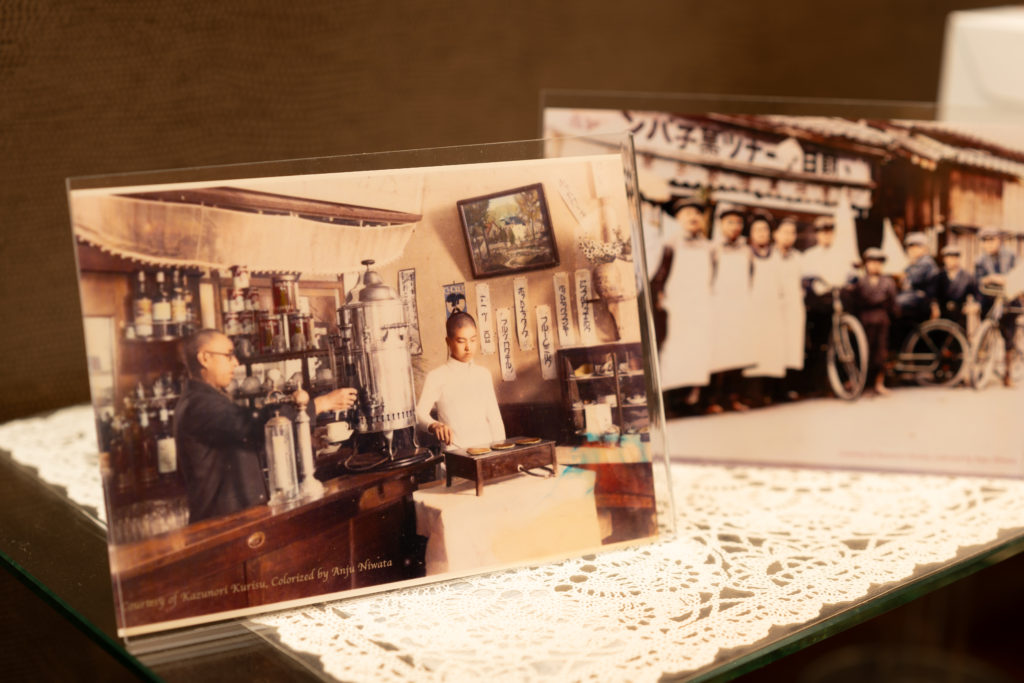
A postcard which reproduces in color a photograph showing how Cafe Akizuki looked like back then
At the same time, the unrest of World War II was sweeping over Japan. The Kurisu family had evacuated during the war, so it escaped disaster, but the atomic bombing turned Hiroshima into burnt-out ruins. Masami, Hyakusaburo’s heir, wanted to somehow revive what his predecessors had made, so he built a provisional workshop in Naka-ku. Under the name “Kurisu Confectionery”, they initially sold confections such as sponge cakes wholesale, and later gathered ingredients to make and sell Western confectionery, such as Swiss rolls. Sugar was in short supply after the war, so the shop was much appreciated by people who were in search of something sweet.
“I’ve heard that they were not as elaborate as modern Western confectionery, but rather simple sweets, such as a sponge cake covered with jam. They would use up every last drop of syrup in the cans so that the product would reach as many people as possible. The philosophy of ‘bringing smiles to people’s faces with sweets’ has not changed since then,” says Kazunori.
Masami was sickly, so Akio, the third owner, became involved in the management of the shop from early on. Wishing to have a shop along the tram tracks, where he could be more in touch with customers and grasp the latest trends, he moved the shop in the 1980s to its current location in front of the Dobashi Station. Before the move, he and his designer went to the U.S., where the shop had its origins, to make a study tour. “The apple pie they encountered there became the shop’s signature product. The homemade taste made by American moms seemed to fit perfectly with the concept of the shop. It was named after Boston, one of the oldest cities in the U.S., and the logo features an apple.”
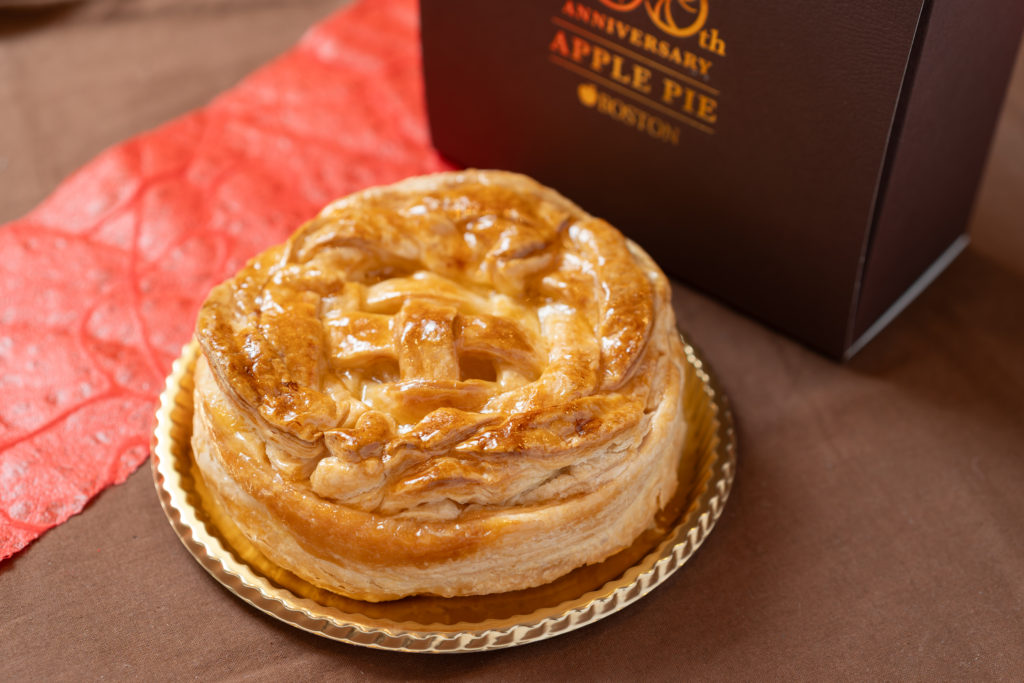
The signature apple pie is still a popular item. This year, special apple pies will be sold to commemorate the 100th anniversary of the shop’s founding.
*Sales may be suspended during peak season (December to January or around the end of February).
In the 2000s, the Asahi Donuts were reintroduced with the intention of letting customers know how the shop started. They have been reborn as healthy baked donuts that meet the taste of modern customers. In addition, the stick cakes, invented by the fourth owner, Kazunori, in order to “keep your hands clean while eating,” have won the hearts of many customers as the shop’s most popular item.
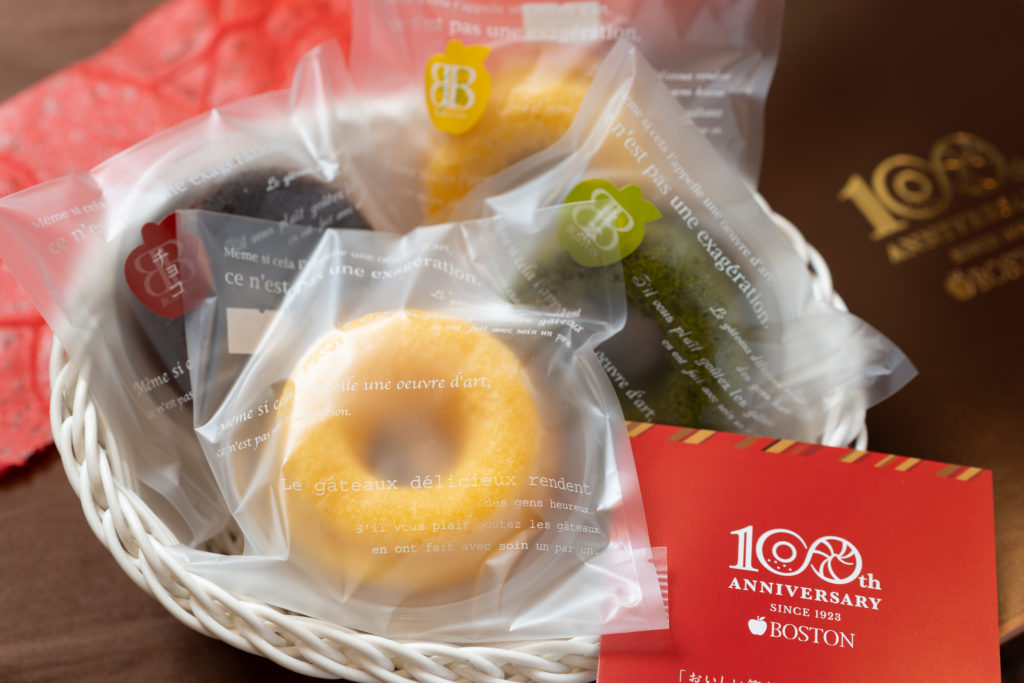
The Asahi Donuts currently on sale. They come in four varieties: plain, chocolate, matcha, and Hiroshima lemon.
“As we have operated the shop for a long time, we’ve heard things from customers such as that they always buy BOSTON sweets for their grandmother’s memorial service because she loved them, or that the previous owner was kind to them. Each time I would really feel how much the shop has been loved by its customers”, says Kazunori.
In the past, BOSTON has been a sponsor for the lantern floating event on August 6, and volunteered to serve sweets at the site of the Great East Japan Earthquake in cooperation with the Confectioners’ Union. “This is because we want to do whatever we can to be of help to the community.”
“In recent years, there have been wars and ethnic conflicts in many parts of the world, and it is by no means peaceful. We cannot stop wars with sweets, but we can bring smiles to people’s faces with sweets. In order to build peace, it is important to have discussions where people try to understand each other before the conflict is born. I would be happy if sweets could soften the atmosphere and bring smiles to people’s faces in such discussions and situations where people face each other.”
BOSTON’s sweets filled with warmth may continue to play a role in bringing people together in the heart of Hiroshima.
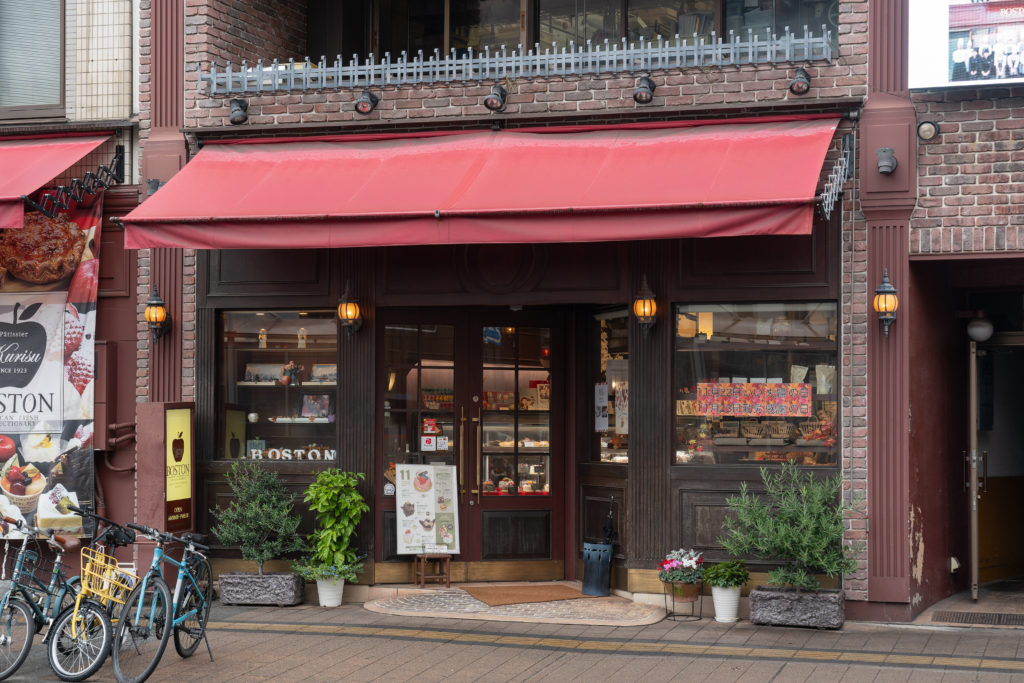
BOSTON Main Store
2-6-3 Sakaimachi, Naka-ku, Hiroshima-shi, Hiroshima
10:00-20:00
No scheduled holidays
Tags associated with this article



